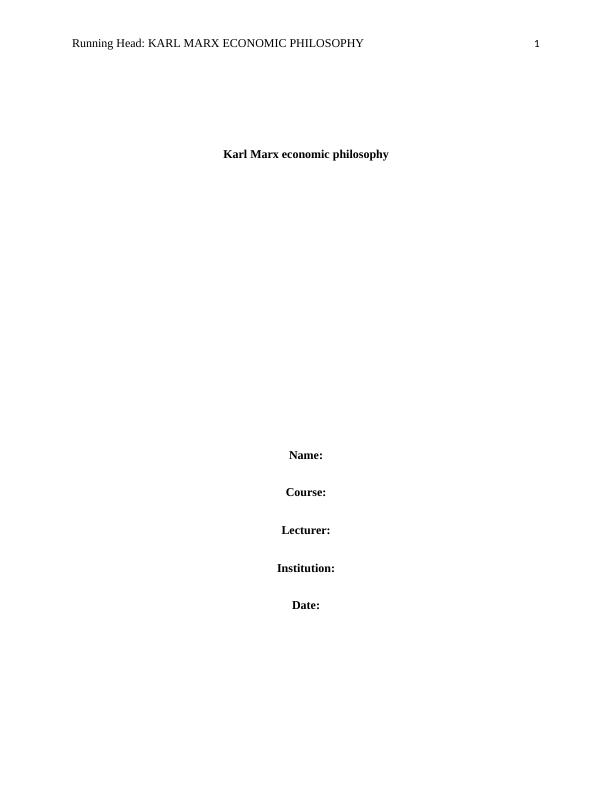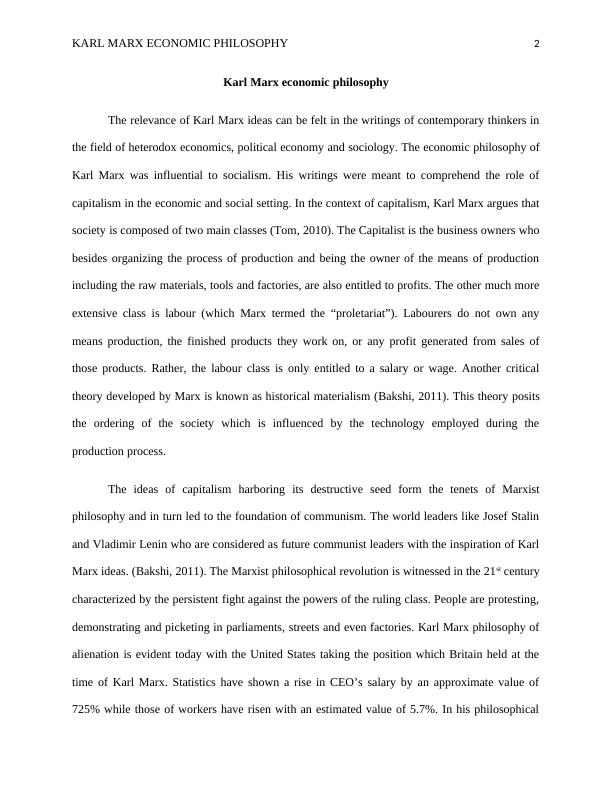Karl Marx Economic Philosophy
4 Pages677 Words51 Views
Added on 2023-03-17
About This Document
The relevance of Karl Marx ideas can be felt in the writings of contemporary thinkers in the field of heterodox economics, political economy and sociology. The economic philosophy of Karl Marx was influential to socialism. His writings were meant to comprehend the role of capitalism in the economic and social setting. In the context of capitalism, Karl Marx argues that society is composed of two main classes (Tom, 2010). The Capitalist is the business owners who besides organizing the process of production and being the owner of the means of production including the raw materials, tools and factories, are also entitled to profits. The other much more extensive class is labour (which Marx termed the “proletariat”). Labourers do not own any means production, the finished products they work on, or any profit generated from sales of those products. Rather, the labour class is only entitled to a salary or wage. Another critical theory developed by Marx is known as historical materialism (Bakshi, 2011). This theory posits the ordering of the society which is influenced by the technology employed during the production process.
Karl Marx Economic Philosophy
Added on 2023-03-17
ShareRelated Documents
End of preview
Want to access all the pages? Upload your documents or become a member.
Karl Marx: A Great Historian
|9
|1864
|237
Karl Marx: The Thinker Who Changed the World
|5
|833
|224
Karl Marx: Historical Materialism, Labor, Commodities, and Alienation
|7
|2170
|146
Making Sense of Society Report
|8
|2567
|39
Marxist Critique of Capitalism
|9
|2028
|191
Marxism: Theory and Impact on Gender Equality
|9
|2507
|58


